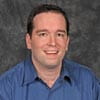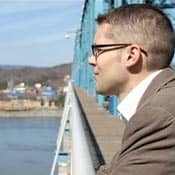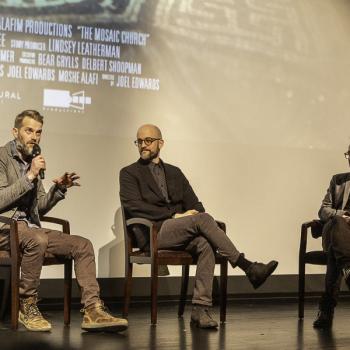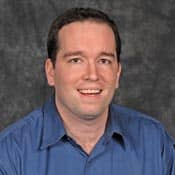Editorial Note: With this interview, the Evangelical Portal at Patheos launches a new "Friday Five" series developed by pastor and author Daniel Darling. We will begin with a set of highlights from previous interviews Darling has conducted, in order to introduce the series to our readership. Since he has interviewed Dillon Burroughs, who recently started blogging at Patheos (visit Holy Writ), this seemed like a natural place to begin.
What follows is Daniel Darling's "Friday Five" interview with Christian author, apologist, and activist Dillon Burroughs.
 Dillon Burroughs is one of my very good friends (visit Dillon's website here). He is the author of way more books than you can count, including his latest, What Can Be Found in Lost? He is on staff at the Ankerberg Theological Research Institute, working with renowned apologist John Ankerberg on important books that address current issues from a Christian worldview.
Dillon Burroughs is one of my very good friends (visit Dillon's website here). He is the author of way more books than you can count, including his latest, What Can Be Found in Lost? He is on staff at the Ankerberg Theological Research Institute, working with renowned apologist John Ankerberg on important books that address current issues from a Christian worldview.
I have always known Dillon to be a thoughtful observer of the culture and a rock-solid apologist for the Christian faith. A graduate of Dallas Theological Seminary, Dillon is married to his lovely wife Deborah and they have three children.
1) You work for John Ankerberg, who produces a terrific show and has written many books on apologetics and worldview. Tell us a little bit more about this ministry and about what you do.
 It's an amazing ministry that pioneered the use of television to teach Christian worldview. It now reaches into over 180 countries on television, airs a daily radio program on over 700 outlets, and is known as a key place for people looking for information on presenting and defending the Christian faith. I'm honored to serve alongside Dr. Ankerberg and many of the guests who appear on our program, including Lee Strobel, Dr. Gary Habermas, Dr. Norman Geisler, and many others.
It's an amazing ministry that pioneered the use of television to teach Christian worldview. It now reaches into over 180 countries on television, airs a daily radio program on over 700 outlets, and is known as a key place for people looking for information on presenting and defending the Christian faith. I'm honored to serve alongside Dr. Ankerberg and many of the guests who appear on our program, including Lee Strobel, Dr. Gary Habermas, Dr. Norman Geisler, and many others.
2) You've spent a lot of years writing, researching, and speaking on Christian worldview as it relates to the culture. In your view, how does our generation view truth and spirituality and how should Christians speak to this culture?
Outsiders unfortunately see evangelicals, political conservatives, and extremists who want to overthrow the government as all being part of the same religious freak show -- people to be avoided at all costs. Yet at the same time, spirituality is increasingly accepted as an important part of culture. A major part of my work is helping people who call themselves "spiritual but not religious" see that the true, biblical Jesus is the only one who will satisfy their longing for spiritual relationship based on unconditional love. It's basically Ephesians 4:15, "speaking the truth in love."
On the other extreme, many conservative, Bible-believing Christians are overwhelmed by culture and not sure what to do, sometimes calling all cultural changes bad. But Jesus was a friend to sinners and lived among ordinary people, yet continued to teach and live truth. That's the dynamic I seek to live and promote, learning all I can and communicating it to others along the way.
3) Besides your own books, you've done an enormous amount of collaborative writing. What has this experience been like? How do you balance your writing style with the voice of your collaborator?
Every project is different! There is no single recipe that works, because each personality is unique. Some authors are very hands-off, while others are eager to go through numerous versions before settling on a final draft. My goal in these projects is to serve the author, helping their voice to ring powerfully with their God-given message. This usually means reading or listening to as much as I can from the author to learn their style, much like an actor will study their subject before playing them on screen. In the end, I consider the words I type as an offering of worship to God, meaning I care a lot about what the material looks like in the end.
4) You were in Haiti pretty soon after the earthquake. What impressions did that trip leave with you?





